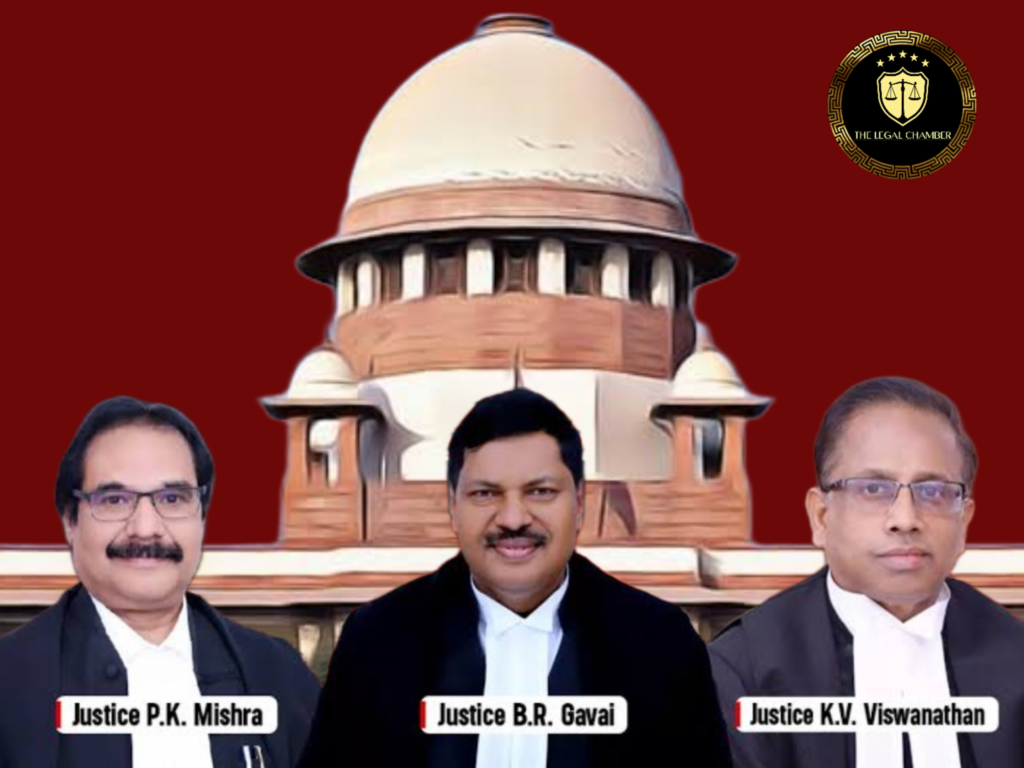
The Supreme Court dismissed the appellant’s plea for releasing his land from acquisition, holding that the absence of a valid Change of Land Use (CLU) certificate disqualified him from benefiting under the State’s release policies. The Court rejected the discrimination claim, noting dissimilarities with other released lands. However, it directed compensation under the 2013 Act, considering his continuous possession, while clarifying this relief was unique to the case’s peculiar facts and not a precedent. The appeal was disposed of accordingly.
-
Facts of The Case:
The appellant, Kishore Chhabra, owned land and a constructed area in Sultanpur, Sonipat, Haryana, purchased in 1986. The State of Haryana issued a notification in 1992 under Section 4 of the Land Acquisition Act, 1894, to acquire land for residential and commercial development, including the appellant’s property. The appellant filed objections under Section 5-A, but the acquisition proceeded, and an award was passed in 1995, with possession allegedly taken by the government. The appellant challenged the acquisition in multiple writ petitions, with the third petition seeking release of his land, citing a running factory on the premises since 1970 and claiming discrimination as other similarly situated lands were released. The State opposed the plea, arguing lack of a valid Change of Land Use (CLU) certificate, delay, and res judicata. The High Court dismissed the petition, holding that possession had vested with the government. On appeal, the Supreme Court upheld the dismissal, ruling that the absence of a CLU barred relief under the State’s release policies and rejected the discrimination claim due to factual distinctions. However, considering the appellant’s continuous possession, the Court directed compensation under the 2013 Act as a unique relief, emphasizing that this decision was not to be treated as a precedent.
-
Procedural History:
The procedural history of the case began with the issuance of a land acquisition notification under Section 4 of the Land Acquisition Act, 1894 in 1992, followed by a Section 6 declaration in 1993, covering the appellant’s land. The appellant filed objections under Section 5-A, but the Land Acquisition Collector passed an award in 1995, recording possession as taken by the government. The appellant first challenged the acquisition in a writ petition before the Punjab & Haryana High Court, which was dismissed. A second writ petition filed in 2008 was withdrawn as the appellant’s representation for land release was pending. The third writ petition (impugned in this appeal) was filed after the State rejected his representation in 2010, but the High Court dismissed it, holding that possession had vested with the government. The appellant then approached the Supreme Court, arguing discrimination and seeking land release under State policies. The Supreme Court upheld the High Court’s decision but granted a limited relief by directing compensation under the 2013 Act, considering the appellant’s continuous possession. The appeal was disposed of with no order as to costs.
-
Court Observation:
The Supreme Court made several key observations while adjudicating the case. First, it emphasized that the appellant’s failure to obtain a Change of Land Use (CLU) certificate—a statutory requirement—disqualified him from seeking land release under the State’s policies (dated 1991 and 2007), as running a factory without CLU was impermissible. Second, it rejected the plea of discrimination, distinguishing the appellant’s case from others where land was released, noting that those landowners had valid CLUs or their cases were unrelated to the same acquisition notification. Third, the Court observed that the State had already incurred substantial expenditure on developing the acquired land, including roads, utilities, and green belts, making its release impractical. Fourth, while dismissing arguments on delay, laches, and res judicata, the Court noted that the appellant had persistently pursued his claim since 2007-08, and his earlier writ petitions did not substantively address the release issue. Finally, acknowledging the appellant’s continuous physical possession of the land (despite the State’s claim of vesting), the Court exercised its extraordinary power under Article 142 to grant partial relief by directing compensation under the 2013 Act, clarifying that this concession was case-specific and not a precedent. The Court thus balanced statutory compliance with equitable considerations while upholding the State’s acquisition.
-
Final Decision & Judgement:
The Supreme Court dismissed the appeal and upheld the High Court’s decision, ruling that the appellant was not entitled to the release of his land from acquisition. The Court held that the absence of a valid Change of Land Use (CLU) certificate was fatal to his claim, as it rendered him ineligible under the State’s release policies. It further rejected his plea of discrimination, finding that the other released lands were factually and legally distinguishable. However, in exercise of its extraordinary powers under Article 142 of the Constitution, the Court granted partial relief by directing that compensation be recalculated under the 2013 Land Acquisition Act (instead of the 1894 Act) to ensure fairness, given the appellant’s long-standing physical possession of the land.
The Court clarified that this concession was based on the peculiar facts of the case and should not be treated as a precedent. The appeal was disposed of accordingly, with no order as to costs. The judgment thus balanced strict statutory compliance with equitable considerations while ultimately affirming the validity of the acquisition.
-
Case Details:
Case Title: Kishore Chhabra vs. The State of Haryana & Ors. Citation: 2025 INSC 419 (Reportable) Civil Appeal No.: 8968 of 2013 Date of Judgment: April 01, 2025 Judges/Justice Name: B.R. Gavai, J. And Prashant Kumar Mishra, J. K.V. Viswanathan, J.
Download The Judgement